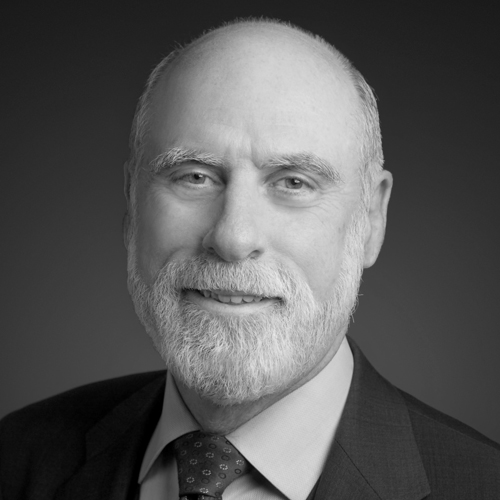THE TRUTH
ABOUT THE
50 MOST
COMMON
INTERNET
MYTHS
Forum Berlin 25th-29th November 2019
Preface

Vinton G. Cerf
Vinton G. Cerf, widely considered one of “the fathers of the Internet”, is VP and Chief Internet Evangelist at Google. He helped found ICANN and was Chairman of its Board from 2000 to 2007. The recipient of many honorary degrees he has been awarded, inter alia, the National Medal of Technology, the Turing Award and the Presidential Medal of Freedom.
This is a wide-ranging compilation of opinions about the Internet and various truths and myths about its operation, use and impact. While I don’t agree with all of the characterizations found in this collection, I think it is important to examine assertions made about the Internet and its applications both to clarify misunderstandings and to understand how some of these misrepresentations come about. Some originate in a kind of zealous hubris about the independence of cyberspace, which, on closer inspection, is revealed to be more bound to the physical and political world than one might think. Others strike me as excuses for adopting positions that are inimical to the beneficial uses of the present day Internet. What is important is for readers to approach these analyses in the spirit of ascertaining useful truths about the complex artifact that the Internet has become. The implementation and use of the Internet varies significantly from one jurisdiction to another, depending on physical infrastructure, culture, societal norms and available technology. The “myths” need to be examined and evaluated in context to be understood and properly evaluated.
My own biases are sure to be evident owing to my long-time involvement in many aspects of the Internet’s creation and evolution, but I continue to believe that, as a platform, it has and will continue to be an extraordinary source of information, innovation and collaboration. The World Wide Web that rides atop the Internet infrastructure has promoted a cornucopia of applications and information infusion comparable to the invention of the printing press. But the unique flexibility of the underlying computing infrastructure provides a universe of functionality unreachable in the static print form. Content can be searched, translated, organized, repurposed, and adapted in ways limited only by our ability to imagine and write software to implement new capabilities.
The profusion of information found in the Net puts a burden on users to think critically about the quality, accuracy and veracity they find. This takes work and, in some sense, is the price we pay for the information freedom found in the online world. Those freedoms are at risk, however, precisely because the borderless Internet is more embedded in the political landscape than its enthusiastic promoters sometimes wish. Dispelling myths has the benefit of placing a reality lens on this remarkable environment and the resulting clarity can help us to steer a course towards an Internet whose benefits can consistently outpace its deficits.

